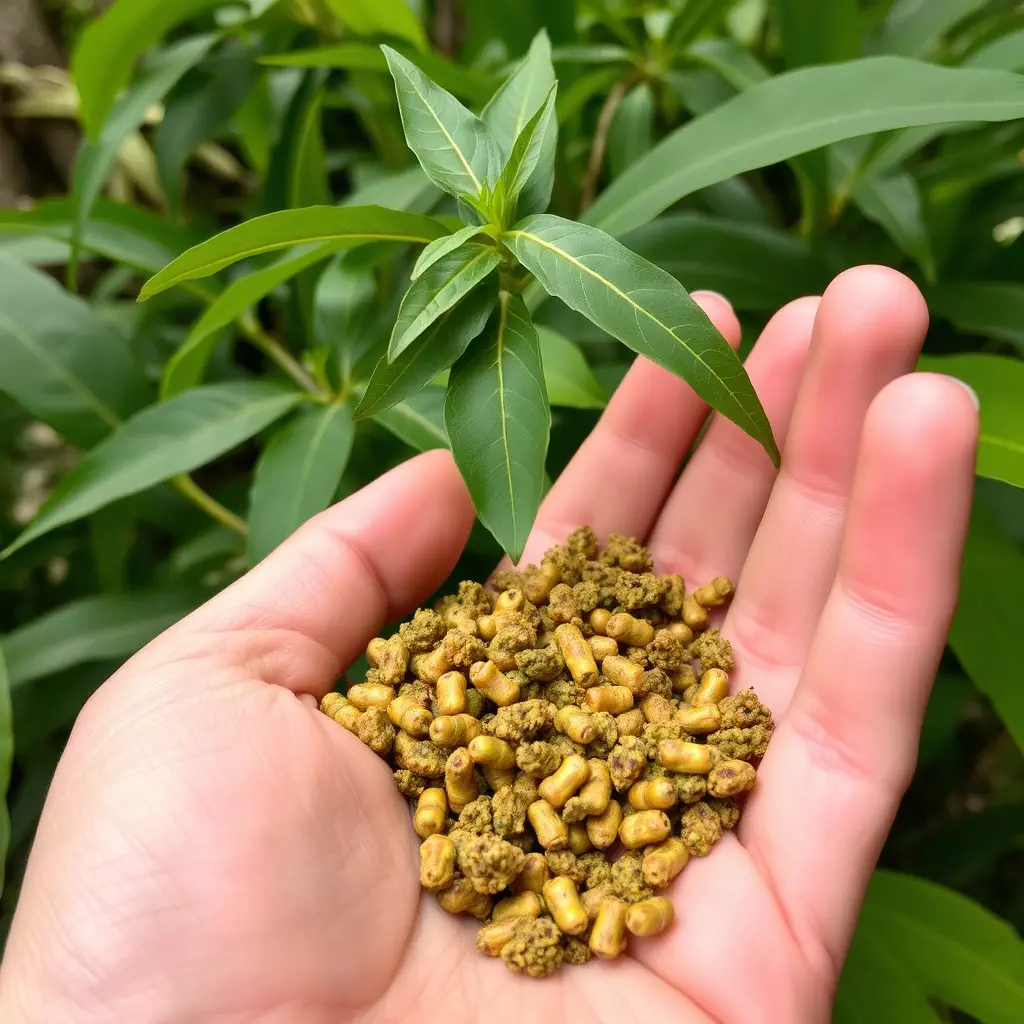Anxiety management using kratom derived from Mitragyna speciosa leaves is gaining popularity as a natural treatment for PTSD, thanks to its active compounds that interact with brain opioid receptors. Scientific research suggests its potential in reducing flashbacks, nightmares, and worry. However, due to variability in dosage and quality, professional guidance is crucial for safe and effective use, especially when combining it with cognitive behavioural therapy (CBT).
Post-Traumatic Stress Disorder (PTSD) can significantly impact daily life, causing severe anxiety and distress. This article explores an innovative approach to managing these symptoms through natural remedies, focusing on Kratom as a potential treatment. We delve into the science behind its effects, offering insights into how it reduces anxiety associated with PTSD. By understanding Anxiety Management techniques combined with the safe and effective use of Kratom, readers can discover a new path towards healing and improved mental well-being.
- Understanding PTSD and Anxiety Management
- Exploring Kratom as a Potential Natural Remedy
- Strategies for Safe and Effective Use of Kratom for Anxiety Related to PTSD
Understanding PTSD and Anxiety Management
Post-traumatic stress disorder (PTSD) is a mental health condition that can significantly impact an individual’s daily life, often causing persistent symptoms like flashbacks, nightmares, and intense anxiety. Anxiety management plays a crucial role in treating PTSD, as it helps individuals cope with the overwhelming feelings associated with traumatic events. One natural approach gaining traction for its potential benefits in anxiety management with kratom.
Kratom, derived from the tropical plant Mitragyna speciosa, has been used traditionally and increasingly explored scientifically for its calming and anxiolytic effects. Research suggests that specific compounds within kratom interact with opioid receptors in the brain, potentially reducing symptoms of anxiety and stress. This natural remedy offers an alternative or complementary approach to traditional treatments, providing a soothing effect and supporting individuals in managing their PTSD-related anxiety.
Exploring Kratom as a Potential Natural Remedy
Kratom, derived from the leaves of the Mitragyna speciosa plant, has gained attention as a potential natural remedy for various conditions, including post-traumatic stress disorder (PTSD) and its associated symptoms. This herb has been used in traditional medicine practices for centuries and is now making waves in modern wellness circles due to its calming and anxiolytic properties. The active compounds in kratom, such as mitragynine and 7-hydroxymitragynine, interact with opioid receptors in the brain, leading to reduced anxiety and stress responses.
For individuals seeking alternative methods for anxiety management, particularly those dealing with PTSD, kratom offers a promising avenue of exploration. Research suggests that it can help alleviate symptoms like flashbacks, nightmares, and excessive worry without the side effects often associated with prescription medications. However, it’s crucial to approach this natural remedy with caution and under professional guidance, as dosage and quality control are essential factors in ensuring safety and efficacy.
Strategies for Safe and Effective Use of Kratom for Anxiety Related to PTSD
Kratom, a natural herb derived from the Mitragyna speciosa plant, has gained attention for its potential in anxiety management, particularly for individuals with PTSD. When used safely and under professional guidance, kratom can offer relief from symptoms associated with anxiety related to PTSD. One of its key mechanisms is interacting with opioid receptors in the brain, which may help regulate mood and reduce feelings of fear and distress.
For effective Anxiety management with kratom, it’s crucial to start with low doses and gradually increase as tolerated. Consistency in dosage and timing is essential for maintaining a stable effect. It should be combined with other evidence-based therapies like cognitive-behavioral therapy (CBT) for optimal results. Additionally, consulting a healthcare professional experienced in complementary medicine is vital to ensure safe use and avoid potential side effects or interactions with other medications.
Kratom has shown promise in managing anxiety associated with PTSD, offering a natural alternative for those seeking relief from symptoms. By understanding the effects of both PTSD and anxiety, and exploring Kratom as a potential remedy, individuals can make informed decisions about their well-being. Implementing safe and effective use strategies ensures that Kratom is harnessed to its full potential for anxiety management without causing further distress. Incorporating evidence-based practices alongside Kratom supplementation may hold the key to improving quality of life for those living with PTSD.






